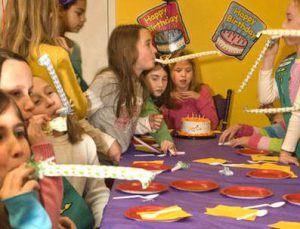Montessori school sounds too fancy and unnecessary to most folks. Kids are naturally smart, creative and innovate tiny humans, but the school’s methods offer much that traditional schooling doesn’t.
When I decided to send my toddler to Montessori school, I got a few raised eyebrows from family and friends who held the above opinion. Why not put all that money toward college? Don’t mixed-age classrooms confuse kids? What kind of privileged hippie kid commune was I shipping my toddler off to, anyway?
Montessori is centered on educational activities and not forced learning, with butts stuck in chairs all day. I got fed up with doing that myself from childhood through adulthood. Kids get a choice. Did you get a choice? What if you had?
The results speak volumes — the founders of Amazon and Google are Montessori alums. Just saying.
Here’s what it came down to for me — choice. My child would be engaged in the learning process through multiple educational activities and exposed to interacting with kids of all age ranges, opening up her social, mental and physical development potential. Kids have got to use those neurons while they’re sparking all over the place, or they go unused.
Montessori Offers Whole-Human and Scientific-Based Learning
I wanted to raise a well-rounded human being, but my tiny human also has her angles and pointy edges. Kids are changeable, sensitive and eager to learn, and toddlers can be tiny tyrants in need of fire hydrants to cool down when they rebel. These stages of growth are hard to manage and understand for parents.
No one goes into parenting fully equipped to raise a child. It does take a village, but modern society isn’t geared to this modality of thinking. Modern society is more oriented toward processing a child through a system of efficiency and performance-based measurement when it comes to learning.
My child is not a number. My child is more than a function. My child is her own little wacky, brave and fiercely sensitive self who loves to learn by poking her finger — and sometimes head — into places these parts shouldn’t go. Montessori is a scientifically based method of childhood education that focuses on the whole child, and their perfectly imperfect quirks — academically, emotionally, socially and physically.
The school boasts over 20,000 locations worldwide and has 4,500 in the United States, each as unique as every child. The over hundred-year-old method was pioneered by Dr. Maria Montessori, who was nominated for a Noble Prize three times. Accreditation to schools is given by the Association Montessori International (AMI) and the American Montessori Society (AMS), and each school focuses on the following principles:
- The absorbent mind: A naturally eager and immensely capable child absorbs significant information from their environment. Ages 0-6 are perfect for cultivating a love of learning and exposing each child to myriad lessons, concepts and experiences.
- Sensitive periods for learning: Each child’s growth occurs across four spectrums of development and each area contains various needs. Each educational approach adapts to suit the stage.
- A prepared environment: An experiential learning environment achieves more than an environment based on memorization. Class materials allow for sensory learning with varying levels of abstraction, which communicate complex concepts as guided by their curiosity and the instructor. Mixed-age classrooms allow for student mentors where multiple forms of interpretation and assistance cultivate a rich learning experience.
- Independence and discovery: There is awareness of and respect for the fact that every child is unique, so each approach must be individual to the child’s readiness and needs.
These methods contain a holistic learning model that doesn’t make for a kid hippie commune, but views the whole child as unique. This program meets my child where she is while encouraging and challenging her growth through sensory and experiential learning modalities.
No One Is Ever Fully Prepared to Adult
You memorized the 50 states in school. Do you remember them all? You learned the alphabet likely by singing the ABC song. Of course, you remember all your letters — you’re using that knowledge right now. There, you have it.
Several things might happen as a result of sending my child to Montessori school, and I have accepted all of them. After all, no one is ever fully prepared to adult. The first concerns family and friends brought up were the adjustment to traditional school and falling behind on specific subjects, thanks to standardized testing.
That’s when I had to break out the science. One five-year study, the most comprehensive conducted yet, found that Montessori public school students didn’t fall behind in light of commonly considered disparities.
In fact, they typically perform better in executive function, which includes emotional planning, organization and control. Montessori students scored higher in creativity levels and were even with traditional students at social levels. Montessori social studies and language arts skills were higher, though science varied throughout the various grades. They did catch up in science, though.
There’s still a chance my daughter may not get certain subjects or approaches at the right time, and that’s OK — she has a support system. There’s a greater chance she’ll discover her passion and follow it, that her mind will expand past memorization and into curiosity, creativity and innovation. Grow, tiny human, grow!
Who wants to lead a cookie-cutter lifestyle, anyway? The mold definitely broke when my girl came into this world, and I have no intention of fitting her into any shape she doesn’t resonate with or believe in. That’s for her to choose, so I have to suck it up and let my kid do it — yes, especially at this young age.

